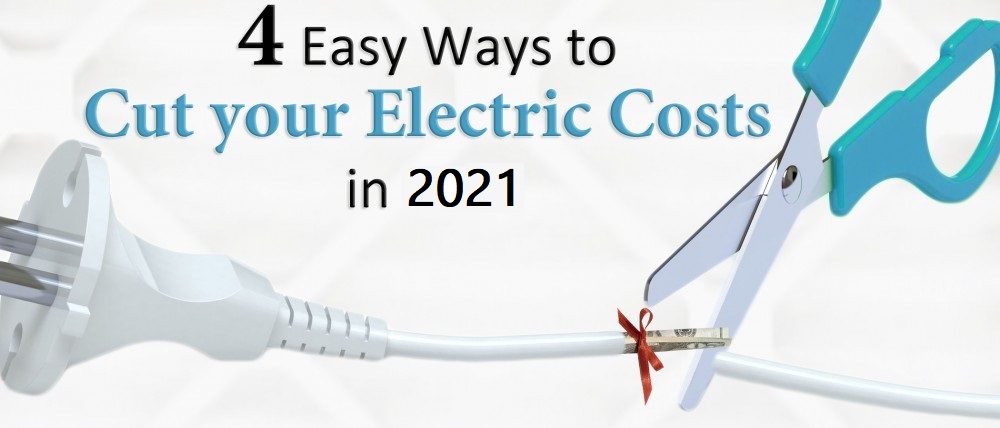4 Easy Ways to Cut your Electric Costs in 2021
No matter what happens with the gas prices, electric prices just keep going up. And since you can’t negotiate with the electric company to get a discounted rate, you need to take it upon yourself to save some dough. Of course, you already know that you need to be turning off the lights when you leave the room and that you can turn your thermostat down a notch in the winter and up a notch in the summer. But what else can you do to see a smaller electric bill next month?

Use Curtains
Quick, take one guess: What is the quickest way to heat your home? That’s right, with the sun. Even during the winter, the sun is often visible (yes, it depends on where you live). If you have curtains, pull them back when the sun is hitting that side of the house. You will be amazed how quickly your home heats up. And in the summer, make sure to keep them drawn to keep your home cooler. Hint: White curtains will work even better because they will actually reflect the warmth away from your home.
Check Thermostat Location
Your thermostat is what controls your entire home’s temperature, so you better make sure you aren’t emitting extra heat onto the small-but-oh-so-important unit. If your thermostat is near a lamp or a television, then it will always think your home is warmer than it really is—which obviously means your a/c will be running too much. With a little rearranging, your thermostat will actually be accurate, and you will save some money.
Stock Fridge Accordingly
With the exception of your HVAC system, your refrigerator is probably the biggest electricity user in your home. So how can you minimize the energy it takes to keep your food cold? First, you can cover up any food or liquids you place in it. If you don’t, the moisture from them will evaporate, which can make the fridge’s compressor overworked. Second, you can keep the fridge as full as possible. The fuller it is, the less cold air will escape when you open it—and the less warm air will take its place.
Replace Your Home Air Filter
Did you know that when your air filter is dirty, your HVAC system has to work harder? It’s true. If the air can’t flow through it as efficiently as it’s supposed to, your heater and air conditioner have to go into overdrive to keep your home at your desired temperature. But when the filter is clean (which means replacing it at least every three months), the air easily makes its way into your living space, saving you money in the process.